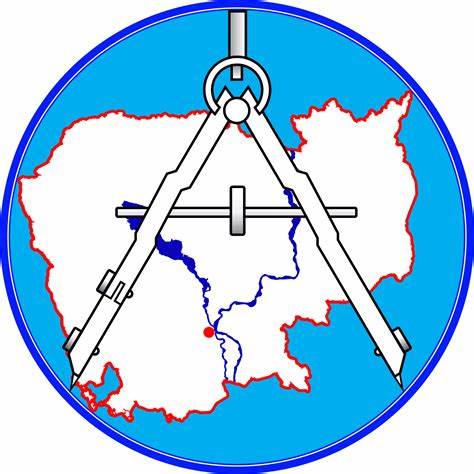Issue Description
The promulgation of Sub-Decree No.126 on the Management of and Use of Co-owned Buildings in 2009 established the legal framework for the ownership, rights and obligations of private units within a co-owned building. This legislation was a defining moment for the Cambodian real estate market as it introduced a new residential ownership class and facilitated the arrival of foreign investment, following the adoption of the Law on Providing Foreigners with Ownership Rights in Private Units of Co-Owned Buildings in 2010.
While these laws were certainly welcomed and have had an overwhelmingly positive impact on the sector, our members perceive there to be uncertainty in respect to the interpretation of Sub-Decree No.126 for residential properties such as apartments, that were constructed prior to 2010.
Apartment buildings have been a mainstay of Phnom Penh’s residential property market well before 2010, and have historically played an important role in providing its residents with a cost-effective housing solution to manage population growth. As such, Phnom Penh has an abundance of properties that suitably match the description of a co-owned building as defined by Sub-Decree No.126: “a building or construction in which several co-owners are living. A co-owned building has parts that are the exclusive ownership of each co-owner, called ‘private units’ and other parts are commonly used by co-owners called ‘common areas’”. However, many of these buildings were constructed even before the adoption of the current land title system, leaving these properties in a legal grey area, as their ownership is held under a Soft Title, which is recognised only at the local government level.
Although Sub-Decree No.126 is flexible and does contain transition provisions under Chapter 5 to convert a building that was constructed before the enactment of the Sub- Decree into a co-owned building, to date, our members are unaware of any existing buildings that have successfully done so.
Impact on business
A combination of limited historic maintenance, preservation and the regulatory uncertainty surrounding the private ownership of apartments, has caused a significant number of residential buildings in Phnom Penh to fall into disrepair, and now require serious renovations to enable them to remain inhabitable. However, as these properties are not recognised as private units within a co-owned building, they lack the internal regulations that condominiums require to govern the rights and obligations of property owners. Without such agreements in place, the shared management and maintenance of common areas such as access ways, structures and utilities are ignored, and there is no requirement for property owners to finance such maintenance.
As private ownership of these apartments remains uncertain and unrecognised nationally, many investors perceive these properties to be too high risk as they may be unable to recoup their investment or because the adjacent properties and common areas are unlikely to be maintained. Consequently, due to the sheer number of older apartments throughout Phnom Penh that require substantial maintenance and significant levels of investment, there is a high potential that many of these architecturally iconic buildings will deteriorate until they become a serious danger to the city’s residents.
Recommendation
- Request the harmonisation of residential property regulations.
We respectfully request clarification into the process to convert residential buildings that were constructed before Sub-Decree No.126, into private units within a co-owned building, and outline how property owners can obtain their new respective co-ownership titles.
Although we recognise that Sub-Decree No.126 on the Management of and Use of Co-owned Building does contain Transition Provisions under Chapter 5, we are unaware of any existing residential buildings that have been successfully recognised and registered as a co-owned building with private units held by a co-ownership title. Therefore, we respectfully recommend that the Royal Government of Cambodia clarify the process for property owners to convert their properties into private units in a co-owned building, and outline how they can obtain their new respective co-ownership or strata title.
Furthermore, this would harmonise the process for existing residential buildings with Article 6 of Sub-Decree No.126 which states that, “the procedure for registering the private units of a co-owned building shall be simple, easy, transparent and respecting the principles of decentralisation, deconcentration, and good governance.”
Royal government of Cambodia
Initiative from Eurocham: The issue has been raised by the Real Estate & Construction Committee within The White Book edition 2024 in the Recommendation No. 53.

On 19th of July 2024, the MLMUPC issued Prakas 050 clarifying the procedure to register private units of a co-owned building that was constructed before 19th of December 1997 (Sub Decree No126). For private units of a co-owned buildings constructed after 1997, the Ministry requires the owner of a private unit to provide the building certificate of occupation.
The MLMUPC has been solving the problem of registration of old buildings by creating a working group to inspect buildings and collaborate with partners to repair buildings on Preah Monivong Boulevard. The Ministry will continue to tackle this issue until it is resolved.
The General Department of Construction of MLMUPC indicated that after the law on construction went into effect, every private unit of a co-owned building and residential properties must possess a certificate of occupation, which includes the management and use of property goods according to the building’s use.
You can find the Prakas HERE.

The Circular 001, issued on the 22nd of May 2025 by the MLMUPC, clarifies the process of registration of private units in co-owned buildings built before December 19, 1997. This circular brings clarifications to Prakas No. 050, issued in 2024.
You can find the circular HERE.
National Counterparts

Ministry of Land, Management, Urban Planning and Construction

